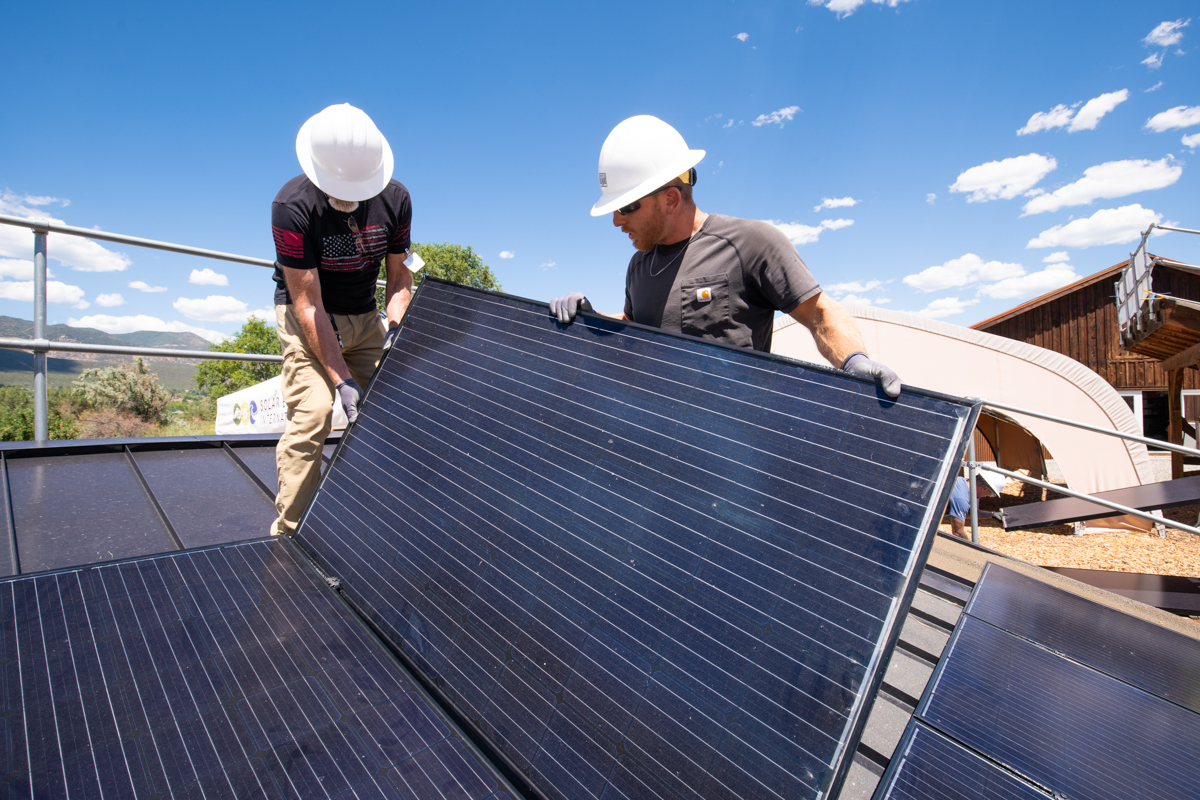Dreaming of a Greener Tomorrow? My Journey to Finding Renewable Energy Scholarships (And How You Can Too!)
Hey there, future change-maker!
Let me tell you a little secret: I used to stare out my window, watching the wind turbines spin in the distance, or seeing those sleek solar panels glinting on rooftops, and a fire would light up inside me. It wasn’t just admiration; it was a deep, burning conviction. I knew, with every fiber of my being, that my path lay in helping our planet breathe easier, in harnessing the incredible power of nature to light our homes and fuel our lives. I wanted to be a part of the renewable energy revolution.
But then, reality hit. Studying renewable energy – whether it’s engineering, policy, environmental science, or something else entirely – costs money. A lot of it. And for someone like me, who wasn’t born with a silver spoon in their mouth, that was a pretty big hurdle. For a while, that dream felt like it was slipping away, replaced by the heavy weight of tuition fees and living costs.
Sound familiar? Maybe you’re there right now, feeling that same mix of passion and financial worry. Well, lean in, because I’m going to tell you how I navigated that tricky landscape and found a way to pursue my passion without drowning in debt. It wasn’t magic, and it certainly wasn’t handed to me on a silver platter. It was about persistence, knowing where to look, and telling my story. And the best part? You can do it too.
Why Renewable Energy, Anyway? (And Why It Matters So Much)
Before we dive into the nitty-gritty of scholarships, let’s just take a moment to appreciate why this field is so incredibly important. We’re talking about more than just a career; we’re talking about a mission.
Think about it: climate change is real, and its effects are becoming more obvious every day. Our old ways of powering the world – burning fossil fuels – are contributing to the problem. Renewable energy, on the other hand, offers solutions. Solar power harnesses the sun’s endless energy. Wind power taps into the invisible currents of the air. Hydropower uses the flow of water. Geothermal pulls heat from deep within the Earth. These aren’t just buzzwords; they’re the building blocks of a sustainable future.
The demand for people who understand and can work with these technologies is skyrocketing. Governments are investing, companies are innovating, and communities are embracing greener alternatives. This isn’t just a trend; it’s the future. And that means there’s a huge need for bright, passionate minds like yours to join the ranks.
The Great Scholarship Hunt Begins (And the Initial Overwhelm)
When I first started looking for ways to fund my studies, I felt completely lost. I typed "renewable energy scholarships" into search engines, and a dizzying array of links popped up. Some looked promising, others seemed too good to be true, and many were just confusing. It felt like trying to find a specific grain of sand on a vast beach.
I made a lot of mistakes in the beginning. I wasted time on scholarships I wasn’t eligible for, got disheartened by rejections, and sometimes just felt like giving up. But I kept reminding myself of those wind turbines, of the cleaner air, of the difference I wanted to make. And that kept me going.
Here’s what I learned through trial and error, the "treasure map" I wished I had from the start:
1. Your University is Your First Stop (Seriously!)
This might seem obvious, but many people overlook just how many opportunities are hidden right within the institutions they want to attend.
- Department-Specific Scholarships: If you’re applying to an engineering department with a strong focus on renewable energy, or an environmental studies program, they often have their own dedicated scholarships. These are usually less competitive because fewer people apply for them compared to general university-wide awards.
- Graduate Assistantships/Fellowships: For those pursuing Master’s or PhD degrees, these are goldmines. You might get a tuition waiver and a living stipend in exchange for working as a teaching assistant, research assistant, or a fellow on a specific project. This is how many graduate students survive (and thrive!).
- General University Scholarships: Don’t forget the broader scholarships offered by the university itself. While not always specific to renewable energy, they can still help cover costs, freeing up your own money or allowing you to take fewer loans.
My Tip: Once you’ve identified a few universities you’re interested in, dig deep into their financial aid pages. Don’t just look at the main scholarship portal. Go to the specific department’s website (e.g., "Mechanical Engineering," "Environmental Science," "Sustainable Development") and look for "funding," "scholarships," or "assistantships." Make notes!
2. Government & Public Sector Programs: Big Impact, Big Support
Governments worldwide are heavily invested in promoting renewable energy and sustainability. They understand the long-term benefits, and they’re willing to put money into developing the workforce needed.
- National Research Grants: In many countries, government agencies (like the Department of Energy in the U.S., or similar ministries in other nations) offer grants and scholarships for students pursuing studies in critical areas like renewable energy. These can be substantial!
- International Development Programs: Organizations like the UN, USAID, or various international aid agencies often have scholarships for students from developing countries, or for those interested in working on renewable energy projects in those regions.
- State/Regional Initiatives: Don’t forget local governments! Some states, provinces, or even cities have their own programs to encourage students to study and work in renewable energy within their borders.
My Tip: Search for "[Your Country] Department of Energy scholarships," or "[Your Country] environmental grants for students." You might be surprised by what you find. These often have very specific requirements, so read them carefully.
3. Private Foundations & Non-Profits: The Heart of the Green Movement
This is where a lot of the magic happens. Countless foundations and non-profit organizations are dedicated to environmental causes, and many specifically support education in renewable energy.
- Environmental Foundations: Think about organizations focused on climate, conservation, or sustainability. Many have education as a core part of their mission.
- Industry-Specific Groups: Are you passionate about solar? Look for solar industry associations. Wind power? Find wind energy councils. These groups want to nurture talent in their specific niche.
- Corporate Social Responsibility (CSR) Programs: Many large companies in the energy sector (even traditional ones transitioning to renewables), or tech companies, have CSR initiatives that include scholarships for students pursuing relevant fields.
My Tip: This requires a bit more detective work. Try searching for "environmental scholarships," "clean energy grants," or "sustainable development funding." Look at the "About Us" sections of renewable energy companies and see if they mention community involvement or education initiatives.
4. Online Scholarship Databases: Your Digital Research Assistant
While I recommend starting with more targeted searches, general scholarship databases can still be incredibly useful, especially once you’ve honed your keywords.
- Popular Databases: Websites like Fastweb, Scholarship.com, Chegg Scholarships, or even specific university-focused aggregators can list thousands of opportunities.
- Niche Platforms: Some platforms might specialize more in STEM fields or environmental studies, making your search more efficient.
My Tip: Use very specific keywords: "renewable energy," "solar technology," "wind power engineering," "sustainable policy," "climate science," "environmental economics." The more precise you are, the better your results will be.
What Are They Really Looking For? (Beyond Just Good Grades)
Okay, so you’ve found a few promising scholarships. Now comes the application process. And this is where many people stumble. It’s not just about filling out forms; it’s about telling your story and showing them why you’re a worthwhile investment.
Here’s what I learned they’re often looking for:
- Academic Excellence (Yes, Grades Matter): Let’s be honest, good grades show you’re capable of rigorous study. While a perfect GPA isn’t always required, demonstrating a strong academic record, especially in relevant subjects (math, science, engineering), is definitely a plus.
- Demonstrated Passion & Commitment: This is huge. Don’t just say you care about renewable energy; show it. Have you volunteered for an environmental group? Started a green initiative at school? Read every book you can find on solar panels? These experiences, no matter how small, tell a powerful story.
- Leadership & Community Involvement: Scholarships aren’t just looking for brilliant individual minds; they’re looking for future leaders who will make an impact. Showing that you’ve taken initiative, led a project, or contributed to your community (even outside of renewable energy) demonstrates valuable skills.
- A Compelling Personal Story: This is where you shine. Your essays are your chance to connect with the scholarship committee on a human level. Why you? What led you to this path? What challenges have you overcome? What specific change do you hope to bring about? Make them feel your passion.
- Alignment with the Funder’s Mission: Every scholarship has a purpose. If it’s funded by a wind energy company, showing your interest in wind power will naturally be more impactful than just talking about general environmentalism. Tailor your application to their goals.
- Financial Need (Sometimes): While many scholarships are merit-based, some explicitly consider financial need. Don’t be shy about honestly detailing your situation if the application asks for it.
Crafting Your Application: Your Story, Not Just Your Grades
This is your moment to stand out. Think of your application as your personal pitch.
-
The Essay: Your Voice, Your Vision. This is arguably the most critical part. Don’t just list your achievements; weave them into a narrative. Start with an anecdote, a moment of realization, or a specific problem you want to solve. Be authentic. Let your personality and passion shine through.
- My Advice: Write multiple drafts. Get feedback from teachers, mentors, or even trusted friends. Make sure it’s polished, free of errors, and truly reflects you.
-
Letters of Recommendation: Choose Your Champions. Ask teachers, professors, or employers who know you well and can speak genuinely about your abilities, work ethic, and passion for renewable energy. Give them plenty of time and provide them with your resume, essay, and the scholarship’s requirements so they can write a strong, relevant letter.
-
Resume/CV: Tailor, Tailor, Tailor. Don’t use a generic resume. Highlight experiences, projects, coursework, and skills that are most relevant to renewable energy or the specific scholarship. Even if you haven’t had a "renewable energy job," think about how your experiences (e.g., a science fair project, a leadership role, problem-solving skills) relate.
-
Proofread Everything (Seriously, Everything!). A single typo can undermine your credibility. Read your application multiple times. Ask someone else to read it. Use grammar checkers. Don’t let a silly mistake overshadow your brilliant ideas.
-
Meet Deadlines (No Excuses!). This sounds obvious, but you’d be surprised. Scholarship deadlines are firm. Create a spreadsheet to track deadlines, required documents, and submission methods. Start early!
Beyond the Money: Building Your Network and Experience
Here’s another crucial insight I gained: scholarships aren’t just about the money. They’re often gateways to incredible opportunities.
- Networking: Many scholarship providers host events or connect recipients with mentors in the field. This is invaluable! You’re meeting people who are already doing what you dream of doing.
- Internships & Research Opportunities: Being a scholarship recipient often makes you more attractive for internships, research positions, or even future job openings within the funding organization or their partners.
- Credibility & Confidence: Having a scholarship on your resume tells future employers or graduate schools that someone believed in your potential and invested in you. It’s a huge confidence booster.
So, while you’re chasing the funding, remember you’re also building your future professional life. Every application, even the ones that don’t result in a scholarship, is practice for your future career.
So, What’s the Big Takeaway?
The journey to funding your renewable energy education might seem daunting, but it is absolutely achievable. My experience taught me that success isn’t just about being the smartest; it’s about being resourceful, persistent, and authentic.
The world needs more people like you – people who are passionate about creating a sustainable, green future. Don’t let financial barriers dim that flame. There are organizations, universities, and individuals out there who believe in this cause as much as you do, and they are ready to invest in your potential.
Start your search today. Be thorough. Tell your story. And never, ever give up on that dream of seeing a greener tomorrow, knowing you played a part in making it happen. Your journey begins now. Go make some waves!
Frequently Asked Questions (FAQs) About Renewable Energy Scholarships
Q1: Do I need perfect grades to get a renewable energy scholarship?
A1: Not necessarily! While strong academic performance is often a plus, many scholarships look beyond just grades. They also consider your passion, leadership experience, community involvement, and the compelling story you tell in your essay. Some focus more on your potential and dedication to the field than on a perfect GPA.
Q2: Are these scholarships only for engineering students?
A2: Absolutely not! While engineering fields like electrical, mechanical, or chemical engineering are definitely covered, renewable energy is a vast field. Scholarships are also available for students studying environmental science, public policy, urban planning, economics, law (related to environmental regulations), business (for sustainable management), and even communications (for advocating green solutions). If your studies touch on sustainability or energy, there’s likely a scholarship for you.
Q3: Can international students apply for renewable energy scholarships?
A3: Yes, many scholarships are open to international students! However, you’ll need to pay close attention to the eligibility criteria for each scholarship. Some are country-specific, while others welcome applicants from anywhere in the world. University-specific scholarships and those from international organizations are often good places for international students to start their search.
Q4: Where’s the best place to start my scholarship search?
A4: I recommend starting with the universities you’re interested in. Check their financial aid pages and specific departmental websites. After that, explore government agencies in your country (e.g., Department of Energy, environmental ministries) and then broaden your search to private foundations, non-profits, and industry associations that align with your specific interests within renewable energy. Online scholarship databases can also be helpful once you have specific keywords.
Q5: What’s the most important part of a scholarship application?
A5: While all parts are important, your personal essay or statement of purpose is often the most crucial. It’s your chance to convey your unique story, your passion for renewable energy, your future goals, and why you are the best candidate. It’s where you can connect with the scholarship committee on a human level and make them believe in your potential. Make it authentic, engaging, and error-free.


